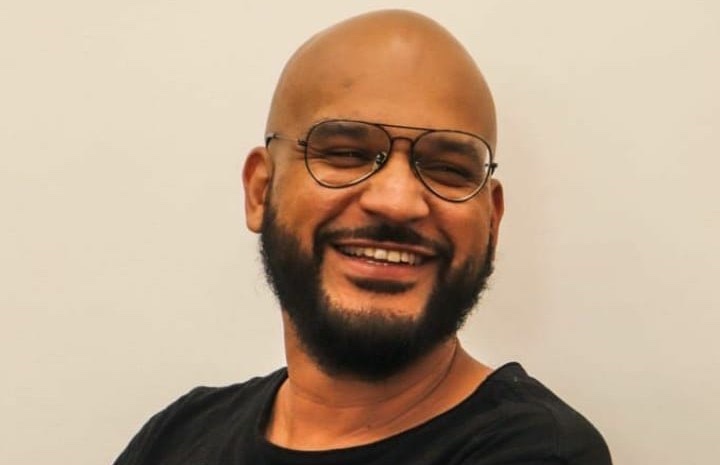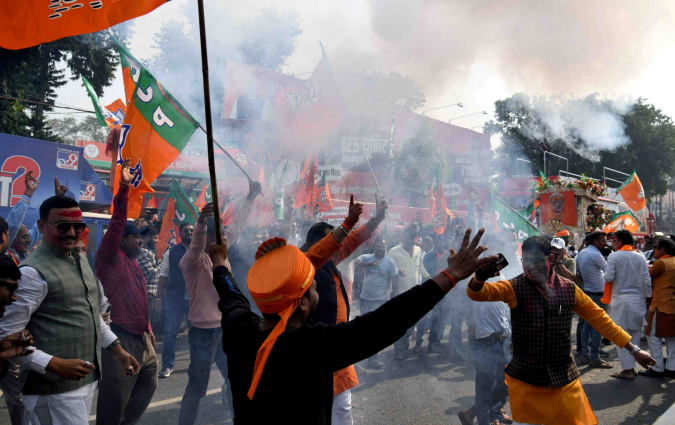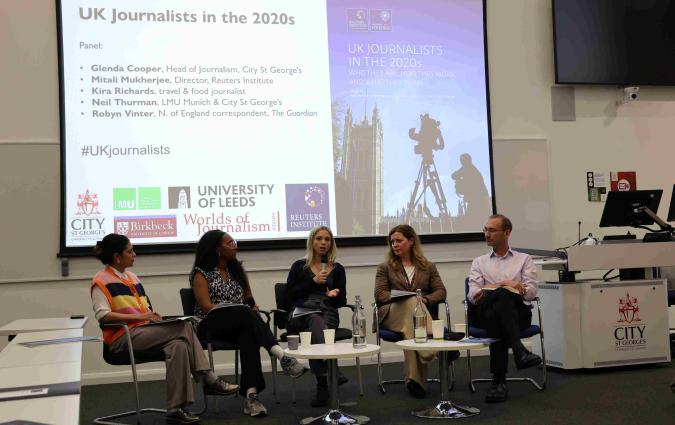The spell is broken: Five burned out journalists on why they left their dream jobs

Brazilian journalist Débora Duque.
When she was still a child, Débora Duque, now 34, decided she wanted to be a journalist. And not just any kind of journalist: she wanted to cover politics for Jornal do Commercio, the most influential newspaper in Recife, her hometown in Brazil's Northeast.
Shortly after graduating, Duque landed her dream job and began covering politics at Jornal do Commercio. She didn't last long though. Experienced reporters were laid off around her and the newspaper’s standards were lower than ever. Burned out and disappointed, she quit her job.
In May the BBC published a news piece featuring many workers who wondered if it was still worth investing in their dream jobs. The article told the stories of people from several fields and showed how these jobs had become unsustainable, either through toxicity, economic instability or burnout.
The piece even mentions a study from South Korea that says that young people have coined the term “passion wage” to describe the low salaries paid to those who work on what they love.
Why do people join journalism?
Is journalism still a dream job? Many young people around the world still embrace it as an opportunity to investigate corruption, witness key moments in history and report on injustice, famines and war. Some even renounce better salaries to keep doing it.
“It was a pleasure that transcended money. To live history in real-time, to participate. I always say that the historian is a commentator on a game already played, while the journalist can still play a part in it. I was so excited. It was a bit naïf I guess. I just wanted to be useful,” says 40-year-old Gabriel Rocha Gaspar, a former correspondent for Radio France International who left journalism a few years ago.

With a father and mother who were both journalists covering the music industry, Rocha Gaspar never wanted to do any other job. As a reporter, he worked in several newsrooms, covering economics, technology and foreign news. As the financial crisis hit news organisations, he began to question his future in journalism.
“There are several categories of censorship that’s invisible from the outside,” Rocha Gaspar says. “When working in a newsroom, you come across things like corporate censorship. You realise advertisers have a disproportionate weight in the news. Some business models are just not sustainable and this has an impact on newsrooms and creates self-censorship.”
Disappointed with traditional newsrooms, Rocha Gaspar joined independent projects, but he saw many problems there too. “Journalists were combative, but their output lacked quality. It was not very professional,” he says. Disappointed with the profession, he drew on his expertise in music and technology and joined a major music company as a manager.
In his new career and with a higher salary, Rocha Gaspar managed to buy a flat and no longer has the urgent need to make extra money from freelance work. During his time as a journalist, his weekends were almost all taken up with additional work, which he didn't get much personal satisfaction from doing.
“I just did it for the money,” he says.
Is this a generational thing?
Business advisor Airam Corrêa sees traces of a cultural and generational change behind the decisions of journalists like Gaspar and Duque. “Each generation creates new myths,” he says. “In my hometown, there are no rock star candidates anymore and now everyone wants to be Mark Zuckerberg.”
A 2019 survey in the UK showed that so-called creative industries are more likely to exploit workers’ passion by paying them lower wages. Another survey from 2020 revealed that 47% of people under 30 had agreed to work for free for a while in order to get their dream jobs.
“Influenced by phrases like ‘live your passion’, many people just give up or keep their guard down,” explains Corrêa, who stresses that economics are also part of the equation. In difficult times, people are less willing to fight for their dream job.
In the specific case of journalism, money and stability have always been decisive factors in leading professionals away from the field.
Quitting journalism for politics
Argentinian journalist Diego Quinteros recently left the profession after ten years working as a reporter at La Nación, one of the country's leading newspapers. He got a scholarship to study in Spain. The newspaper didn't give him the chance to take unpaid leave for a while, but he decided to go anyway.
Back in Buenos Aires, he took a job outside the newsroom to pay his bills. “When you're 20, earning little money doesn’t matter so much. When you’re 30, with no weekends and still earning little money, the equation is much more complex,” says Quinteros, who currently works as an adviser for a politician in his home country.
A paper that I published in 2019 after my time as a Journalist Fellow at the Reuters Institute showed how Brazilian politicians were managing to capture the best journalists in the Northeast of the country. According to my survey, almost 40% of the reporters who had left their newsrooms over a ten-year period went on to work as communications advisers to politicians or public agencies.
Although some journalists are changing their career paths more radically, becoming PR professionals or communications advisers is seen by many as the most logical option. Panamanian journalist Luis Burón, who worked for 12 years at the newspapers La Estrella and La Prensa, works now in the communications department of a UN agency. Like other sources in this piece, he left journalism for financial reasons.
“Although I was working as a freelancer, I needed to have a more stable arrangement,” he says. “I managed to have that with one of the newspapers I was working with. But as the crisis worsened, they decided to terminate my contract, and when I lost this, what I earned from more occasional gigs was not enough to survive,” Burón says.
Outside the newsroom, his life has improved considerably. “Changing careers has allowed me to move into a new house, buy a better car and provide more for my son,” he adds.
After leaving journalism, Débora Duque followed a similar path. She started working as a communications officer for a public institution in Brazil. Her main goal was to gain time and reframe her passion: writing about politics in her home country. Today she holds a master’s degree in political science and is a PhD candidate at Brown University in the United States.
Creating impact beyond journalism
British reporter Sam Dubberley followed a similar path. After more than a decade working for the European Broadcasting Union (EBU), he now works as managing director at Human Rights Watch (HRW) in Berlin. Before joining HRW, he accepted an invitation from Amnesty International, where he saw the chance to have a meaningful impact on society.
“I was promoted to editor-in-chief very quickly and very young, and I was very unhappy in this management role,” Dubberley says. “I was probably burned out. I needed a break and a change of direction. Then I was offered a position at Amnesty International. I still felt very connected to journalism and I liked the focus on creating impact rather than just sharing stories.”
For Corrêa, the business advisor, the “glamour” of a workaholic life in journalism may be a thing of the past. Some companies may be still trying to attract young people in search of meaning. But he thinks that pursuing happiness exclusively through work is the perfect formula to make oneself unhappy.
Corrêa recommends what he calls passion washing: “There are other drivers [in one’s life] such as personal growth, the health of your relationships, and physical activity. ‘Who am I?’ and ‘What do I want to do?’ are questions we always have to live with. The key is being clear on what you’re willing to accept and not abandoning these other drivers.”
Is a former journalist still a journalist?
In the article published by the BBC, University of Michigan Associate Professor Erin Cech also addresses the existential question of passion-based careers. “If you leave that job, or the organisation goes away, suddenly you’re at risk of losing a core part of who you think you are, and that can be devastating,” she says.
Rocha Gaspar says that despite the change, he continues to present himself as a journalist. “The fact that I now do journalism only as a hobby frees me from what took me out of the profession in the first place,” he says. Burón, the journalist from Panama, also continues to present himself as such. “Being a journalist was very fulfilling,” he says.
But not everyone agrees with Rocha Gaspar and Burón.
Quinteros, the journalist from Argentina, says he still fills in “journalist” on forms, but he no longer feels the same way he did in the past. “I don't feel any nostalgia and I can’t imagine myself back in a newsroom,” he says.
Duque, the journalist from Brazil, introduces herself as someone who “graduated in journalism” and believes that the profession is still part of her identity. But she recognises that “the allure of journalism is not the same.” The spell is broken.
In every email we send you'll find original reporting, evidence-based insights, online seminars and readings curated from 100s of sources - all in 5 minutes.
- Twice a week
- More than 20,000 people receive it
- Unsubscribe any time







